TRENDING
Clever Marketing Gimmicks That Tricked Consumers
Published
5 years agoon
Brands are competing in stores everywhere daily, and more so online than ever before. And although product recognition, word of mouth, and price point can go a long way, you still have to beat out competitors. So companies turned to some clever, and frankly dishonest marketing.
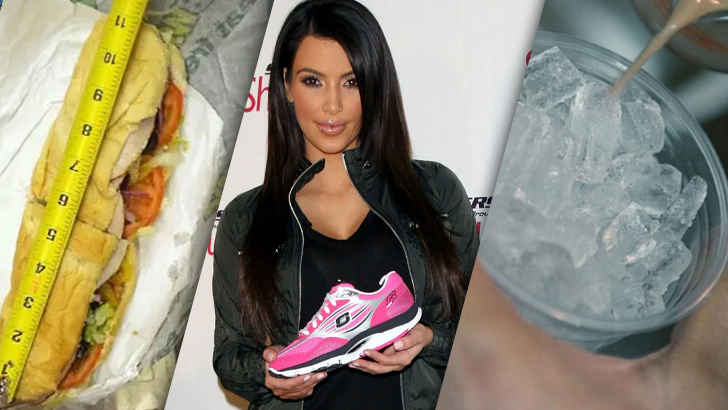
Now we’re not saying all companies do this, but there are some big names getting away with it. Claiming to give you more bang for your buck, giving you false health benefits, and mis representing what’s pictured is just the tip of the iceberg. Here are some of the most egregious marketing gimmicks of all time.
Unfresh Bread
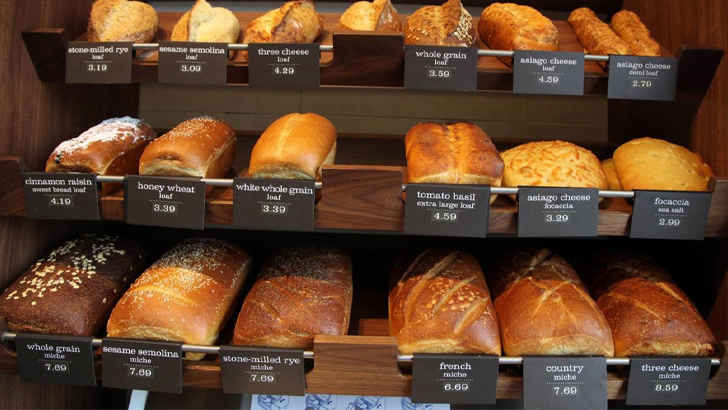
Panera loves to promote the fact that they sell fresh bread, but the reality is that all of their dough is pre-prepared and almost always frozen. You’d think they were just kneading and baking it in the back, but that’s simply just not the case.
Boxed Movie Candy
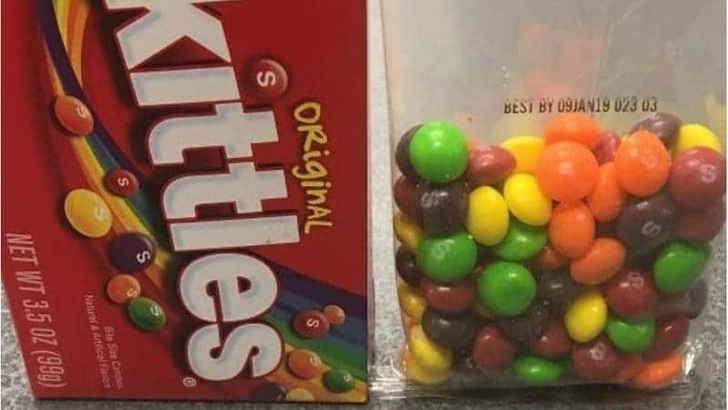
Whether you’re at the theater trying to enjoy a movie or buying these in bulk at your local drug store, the reality is that the same disappointment hits every time you see the plastic bag inside is only halfway filled. Not only is it false advertising, but it’s a let down for kids and parents alike.
Santitas Air
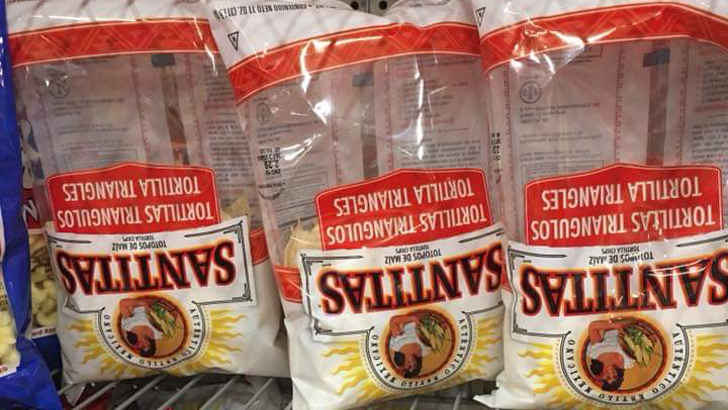
Santitas has been getting away with this for a long time, and it’s surprising more people haven’t noticed. Though the clear window always shows plentiful chips, flip the bag over and be taken aback that it is hardly halfway full. All bags have tons of air, but these are exceptionally bad.
Two-a-Day?
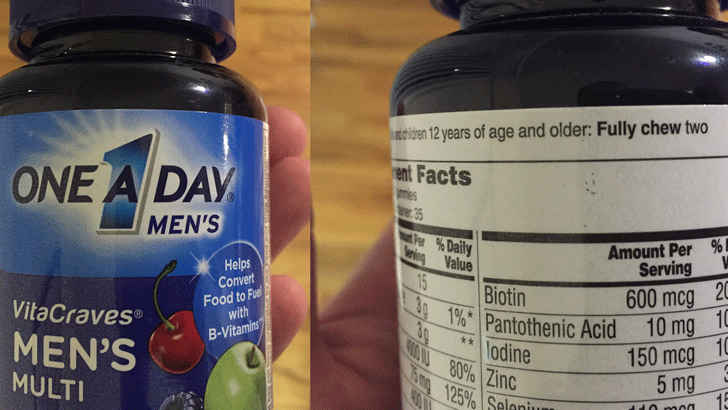
One of the most bonheaded things about marketing is that some people’s job is to completely spin a product that directly contradicts their name. Take One-A-Day, who has to somehow convince people that after buying it, now need to take TWO gummies a day. Get it together.
Large Cereal
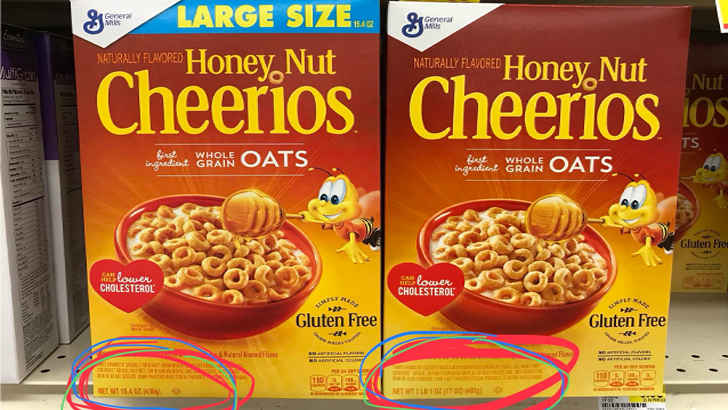
You may notice when you’re browsing down the cereal aisle that nearly every brand has what they call a “large size”, or “jumbo” box that you’re instantly assuming has more than the regular size. But think again, because these Cheerios, for example, actually contain less. What gives?
Gift Baskets

Gift baskets are a super convenient way to send flowers, candy, and other delicious foods or treats to a friend or loved one, but the most frustrating part is that despite their elegant presentation, oftentimes the basket has filling, and only limited amounts of the product are sectioned out. For the price you pay, you really should be getting the full vessel filled.
Misleading Imaging
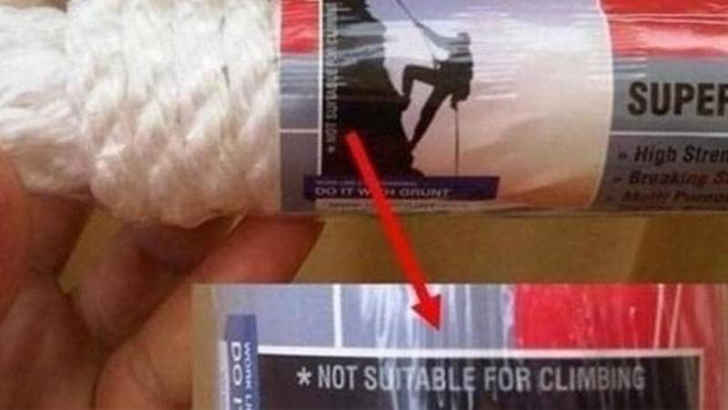
It’s pretty unfair of a brand to use imagery on their packaging that suggests a product is for a certain use, then immediately contradict it but stating that the product is not suitable for that exact task. Not only misleading, but dangerous.
Short End of the Shrimp
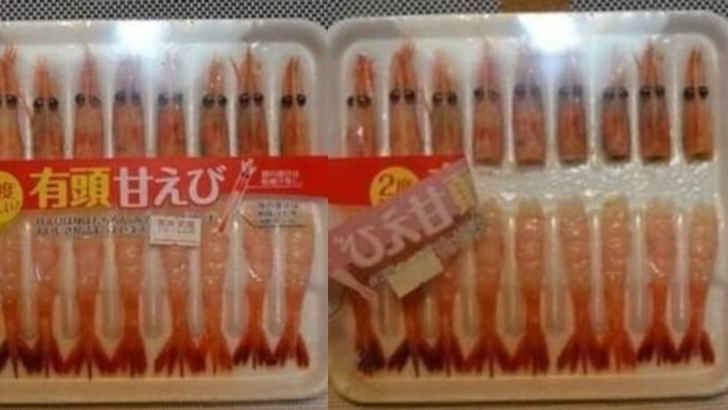
Seafood is already expensive as it is, but what we don’t need is companies shorting us any of what’s already a very small food. This brand thought they were slick by applying some packaging right over a gap they cut out of the shrimp, leaving buyers very upset.
Soft-Serve Scam
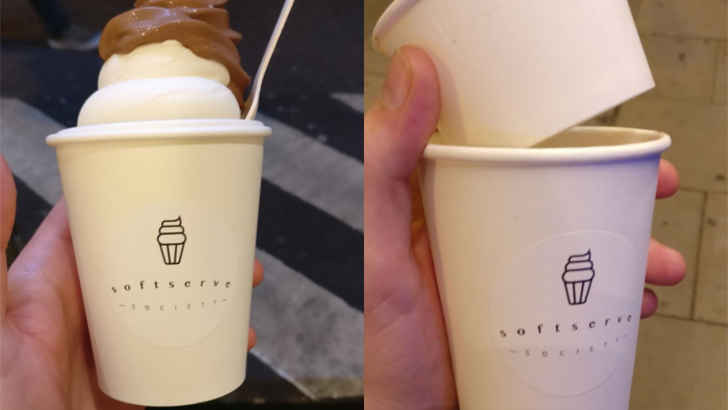
A lot of specialty soft-serve ice cream shops around the world have been guilty of using this trick, which is just a smaller cup inside of the larger cup you think you’re getting, all so they can save some measly bucks by charging you more for less. Not very transparent of them.
Not a Footlong
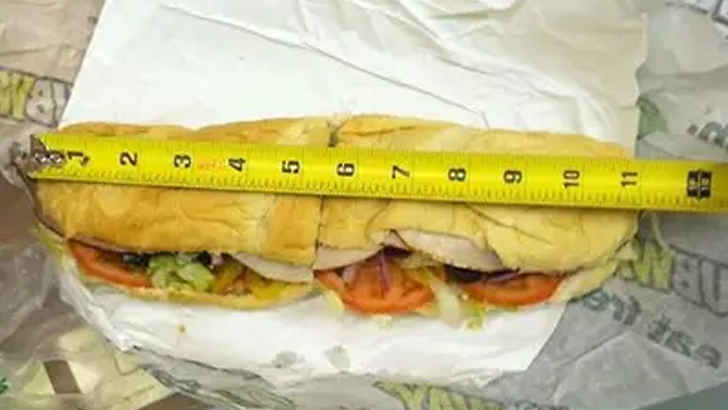
This one just seems par for the course, because the “5 Dollar Footlong” is as clever a zinger catch phrase as you could ask for. Not only did it come in at 11 inches, but it now costs $6 and it was apparently never the intention of Subway for it to actually measure a foot, but to be catchy.
Environmental Avocados
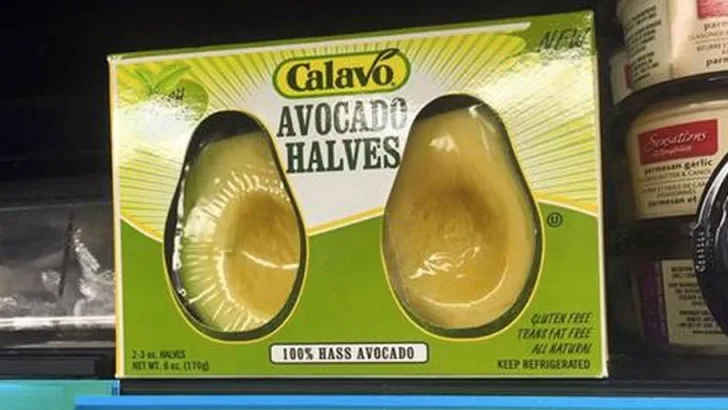
Some brands really try to say they’re helping the environment when in reality, the change they make is somehow more harmful. Take Calavo, who pride themselves on being an environmentally friendly company, but deciding to package peeled avocado halves versus just selling the avocado as it defeats the whole purpose.
Deodor-Ain’t
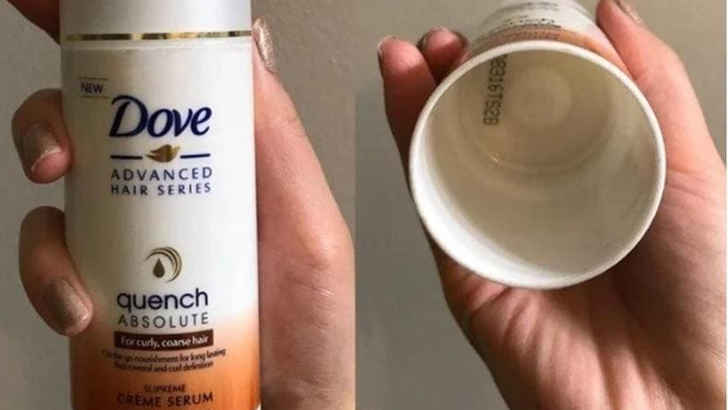
Dove brands cosmetics had one of the more deceptive packaging manipulations in recent memory when a disgruntled customer photographed the gaping space underneath a deodorant bottle. Clearly, users don’t like when you try to fool them into paying for more than they they’re getting.
Corporate Photoshop
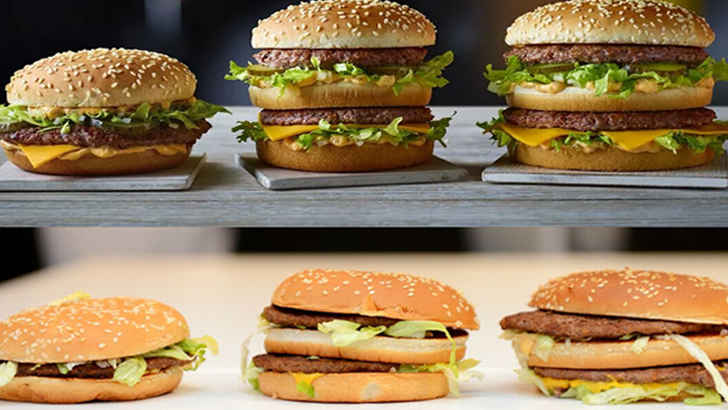
When you see ads on TV or around town for fast food, you often are attracted to how delicious it looks, but almost everyone knows that’s just not the case. Take these McDonald’s images vs. the real thing, which shows just how much artificial work and photoshop is put into this deception.
Staggered Nerfs
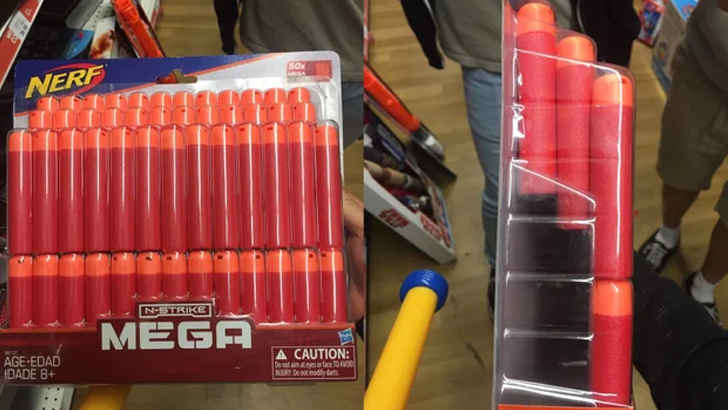
It’s truly amazing how many packaging tricks companies use, because when you think you’ve figured them all out, they come up with something new. In this purchase of nerf replacements, you can see a shopper realized the back rows were propped up by some holding plastic, instead of being the “mega” package as it claims.
Imitation Cheese
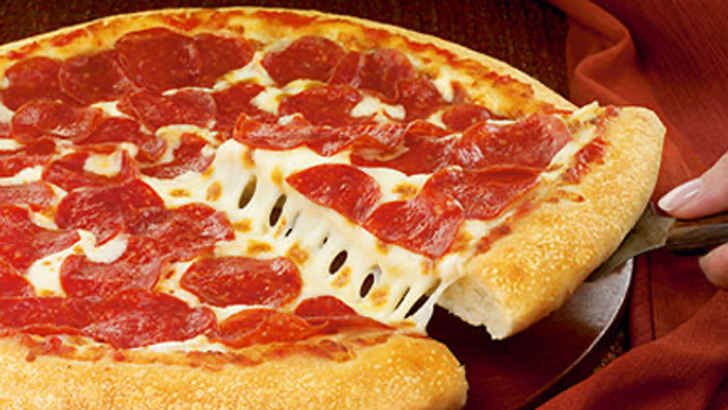
Pizza enthusiasts will tell you that it’s all about the ingredients, more so than extravagant toppings or gimmicky crusts. Well, one mistake Pizza Hut will never make again is using imitation cheese, which was actually exposed by the health department. Surely it lost some of their customers forever.
Double Snickers?
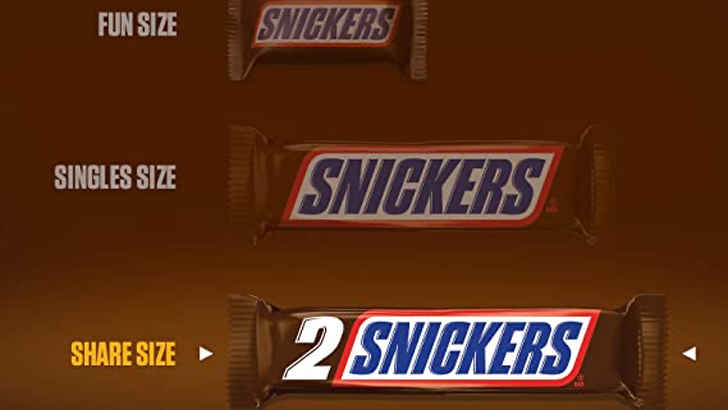
If you’re a candy fan, or a Snickers lover in particular, you probably noticed this one. Often, Snickers will sell a “King Size” or double package that claims to contain two bars. Well, you’d be surprised to know that it’s not even close to double regular bar, so you’re better off just buying two singles.
Starbucks Ice
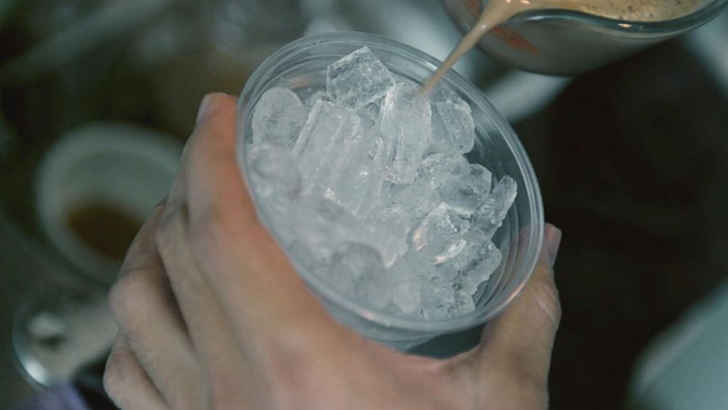
Starbucks is the most popular consumer coffee option across the globe, and unfortunately, their tactics are universal too. Their most popular ruse is loading up on ice as the size of the order goes up on their cold drinks. Therefore, bigger drink means more ice proportionally, which leave customers frustrated when their drink has less in it than expected.
Re-Served KFC
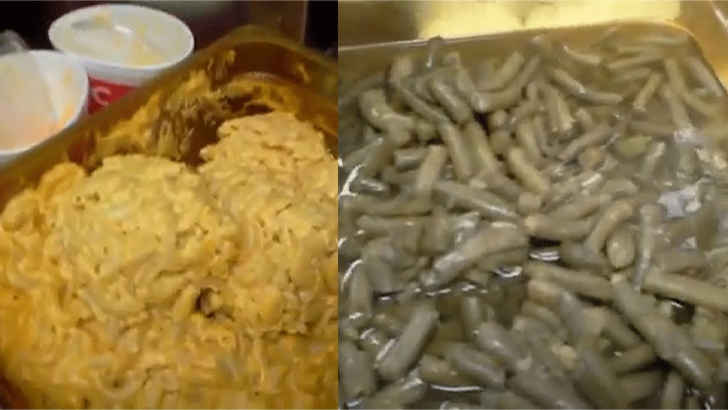
One thing you never want to hear from a restaurant is that they’re repurposing old food after the safe, consumable time frame – let alone the next day… KFC suffered from this a few years back, where despite claiming to sell fresh and hot food, a viral video showed employees saving green beans and mac-and-cheese for not just the next day, but a stomach-churning 4th day.
Unreadable Warning
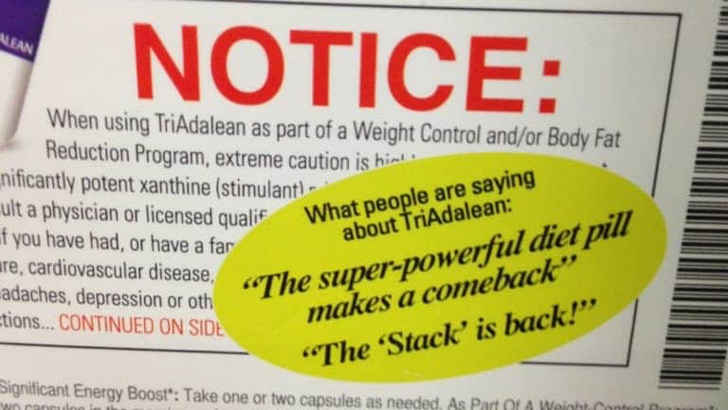
It seems pretty careless to put a sticker over a warning label, but when you realize this claim the company is arbitrarily making while patting themselves on the back is actually printed over the warning, you have a right to be furious. How can people feel safe if they can’t read a notice? Seems like medical malpractice.
Natural Products
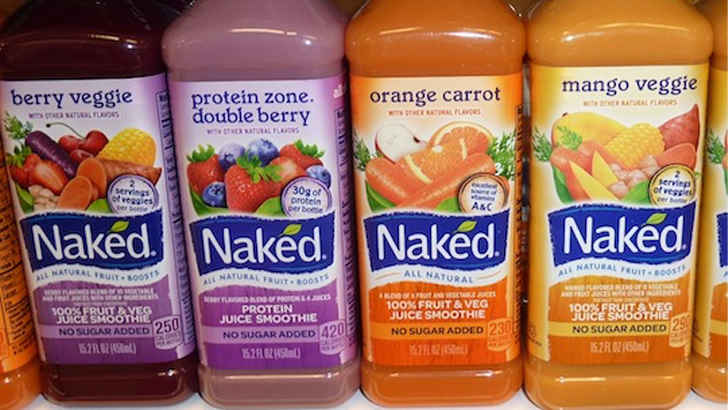
Claiming your product is “natural” isn’t anything new, but did you know most times it’s not even true? A lot of times all it means is that no flavors or coloring has been added, which isn’t very hard to do. In the meantime, they continue to still put antibiotics, GMOs, pesticides, and other things that surely aren’t natural in these products. This is just another hijacking of a word.
Kylie’s Scrub
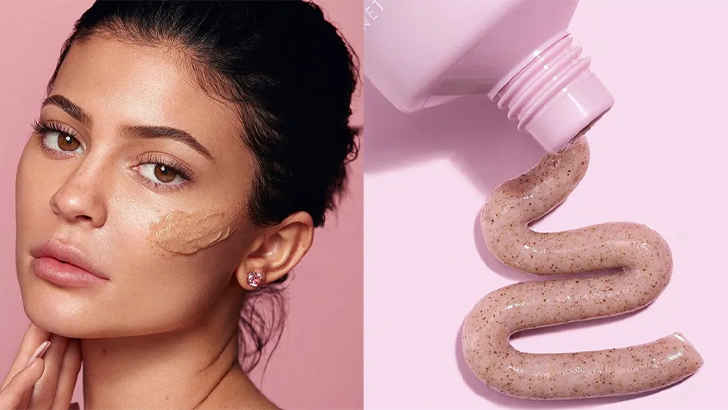
Self-made billionaire Kylie Jenner’s skin care business has become a cultural phenomenon over the last few years, but she’s not free from false marketing either. Despite having a powerful voice and good advertising, her popular walnut scrub came under intense scrutiny when dermatologists pointed out that crushed walnuts actually do considerable damage to your skin.
Nike Bands
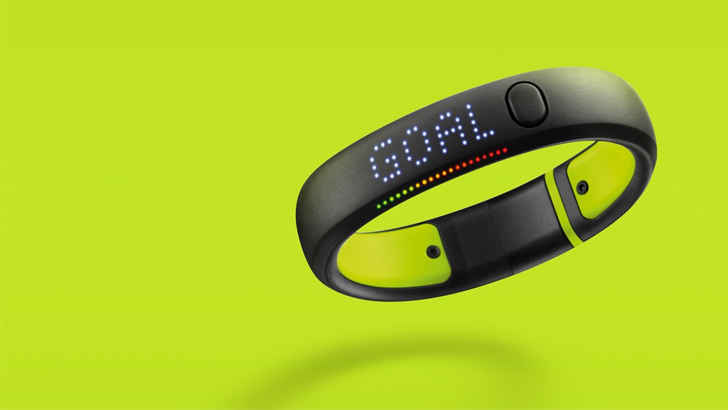
When fitness tracking was beginning to pick up, Nike threw their brand into the game with their own FuelBand. However, they got too technical with it, and didn’t advertise that you needed a compatible Nike+ product with it. This blunder halted them from getting into the hot market, and were forced to pull out considering they couldn’t keep up with the competition. Not typical of them.
Wheatie Attention
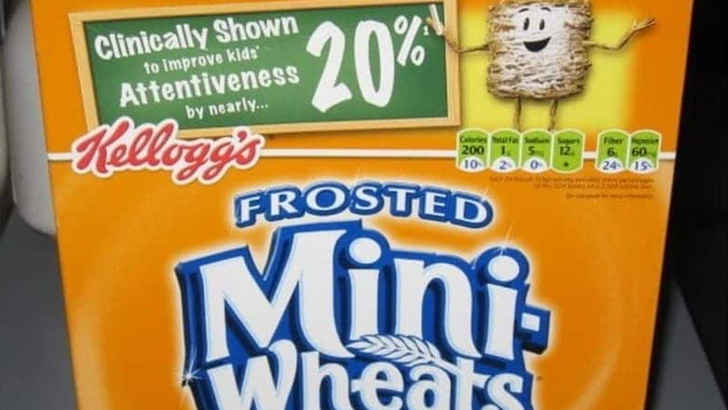
Cereals make some pretty wild claims considering their a simplistic breakfast food, but one of the more famous misclaims was when Frosted Mini-Wheats stated they were “clinically shown to improve kid’s attention by nearly 20%,” thinking nearly would cut them loose. Well, they were very wrong, and had to pay back $4 million in settlements for their gimmick.
Listerine Pocketpak*
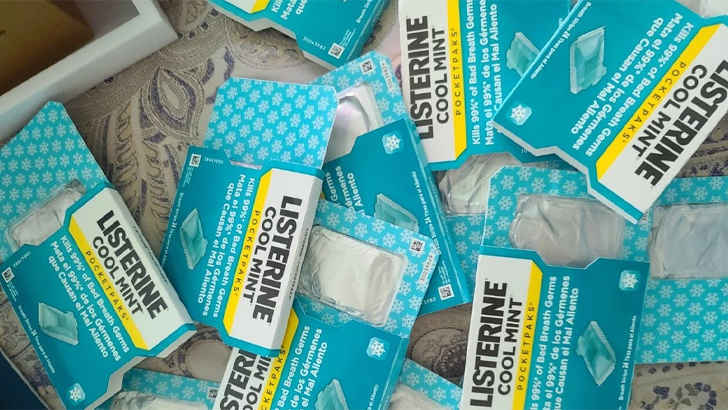
Listerine is just another brand who tried to convince people something was smaller, only to use even more wasteful double packaging. And not only that, they give just one pack even though they market it as “Pocketpaks” plural. This is a double whammy as far as consumers are concerned, and many frustrations were voiced on how unacceptable these practices are.
Pop-tart Frosting
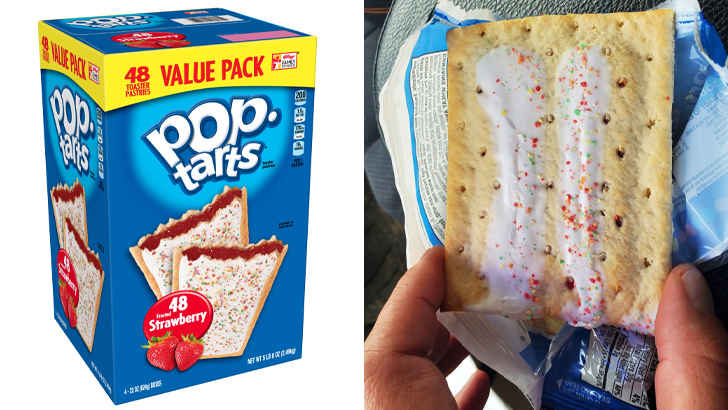
Pop-tarts have long been a staple breakfast item, mostly for children, but parents have more than just their lack of nutrition to be upset with. Many times the brand has been embarrassed by terrible frosting coverage, which is almost half of the excitement of the pastry. Unfortunately this shortcoming has hurt their reputation as being a delicious treat.
Bag Weight
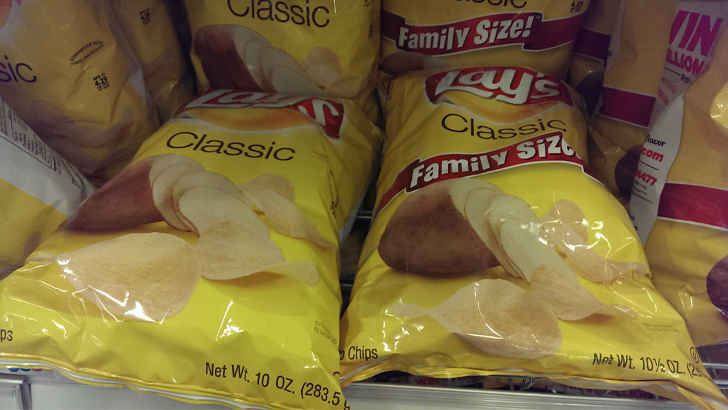
When you buy chips, especially ones claiming to be bigger or jumbo bags, be sure to check the weight on one of the bottom corners. Some customers have pointed out that regardless of the false advertising, it’s literally only the size of the bag and more air that’s bigger. The weight is actually the same when it comes to the actual chips.
Single Blueberry
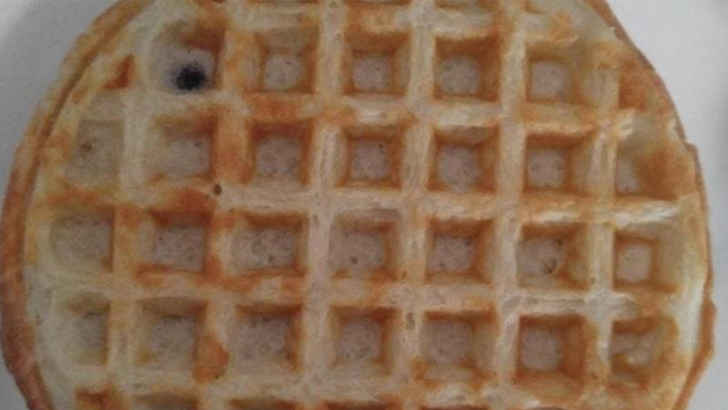
Kellog’s frozen blueberry Eggo waffles have been a popular breakfast item for decades, and all it takes is a royal mistake like this one to lose lots of would-be and previous customers. If you pulled out your waffle only and only had a single blueberry, you would be pretty livid too, we presume.
Emoji Balloons
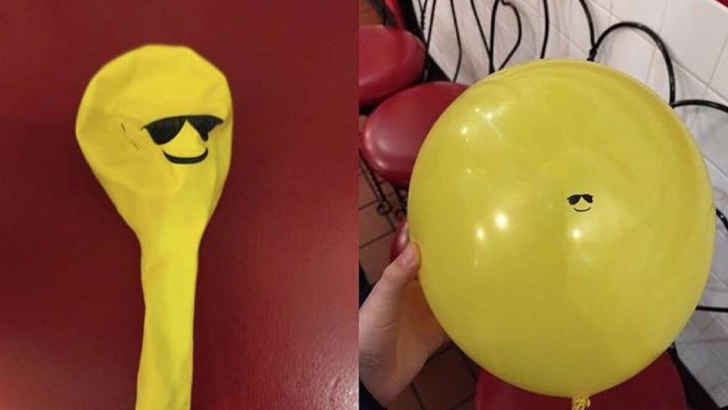
This is why you don’t trust things from dollar stores, even if you only think it’s worth a dollar. These emoji balloons were an utter disappointment, because as you can see, after they were blown up, the size of the face didn’t even change! This is honestly more comical and probably got some good laughs, but frustrating nonetheless.
Animal Packaging
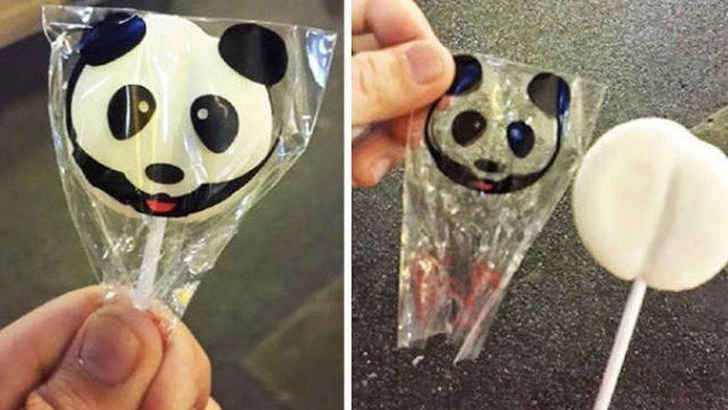
One thing in particular that is almost always low quality at a dollar store is food, and just the concept seems suspicious. But this lollipop, which was probably purchased for a child under the impression that the lollipop itself was shaped like a panda, was just black print on the packaging, with a plain white lollipop inside. The kid couldn’t have been pleased.
5-Hour Energy
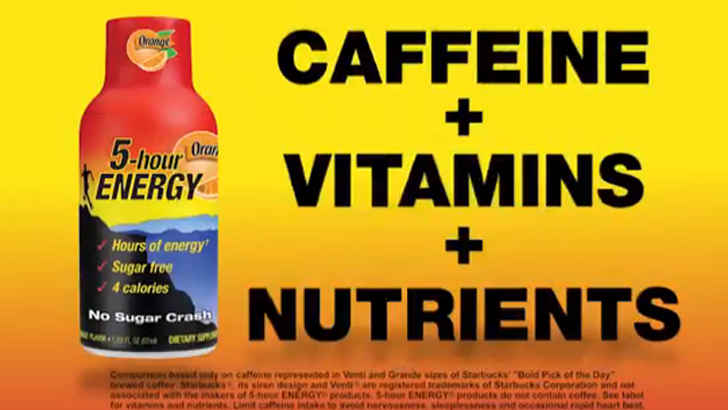
Everyone remembers the craze of 5-hour energy, and the disbelief behind some of its claims. While the length of its effects can still be debated, their advertisements stating that it was recommended by doctors and was nutritionally better than coffee ended up landing them with $4.3 million to pay back in lawsuits.
Vitamin Water
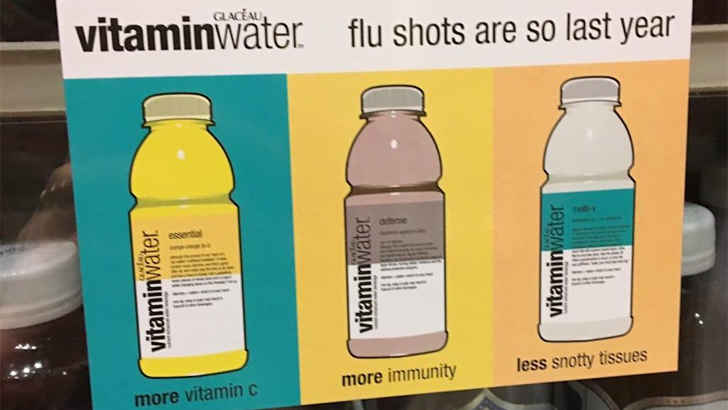
Coca-Cola was bound to make this list at some point, and one of their bigger blunders came when they advertised Vitamin Water to be a supplement to maintain healthy joints, prevent eye disease, and other outlandish health proposals, which were downright false. This put them in hot water, and consumers no longer fell for the fake nutritional value.
L’Oreal or Fake?
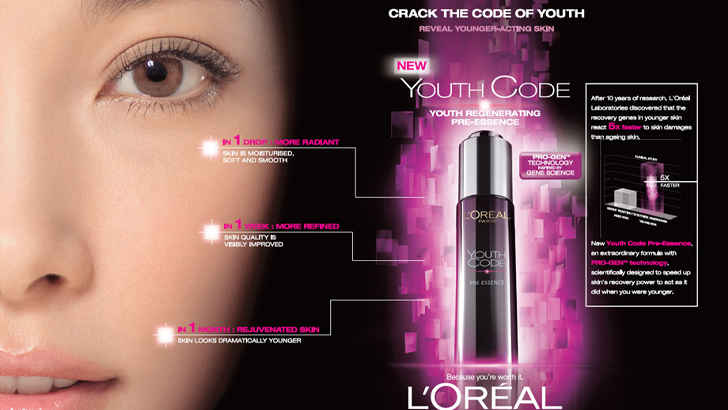
Lancôme Génifique and Youth Code were both popular cosmetic brands from L’Oreal skincare, and both assured would-be buyers that their products would stifle aging skin by means of boosting genetic activity – which they couldn’t prove at all. The company was forced to retroactively walk back those claims.
Jamie’s Yogurt
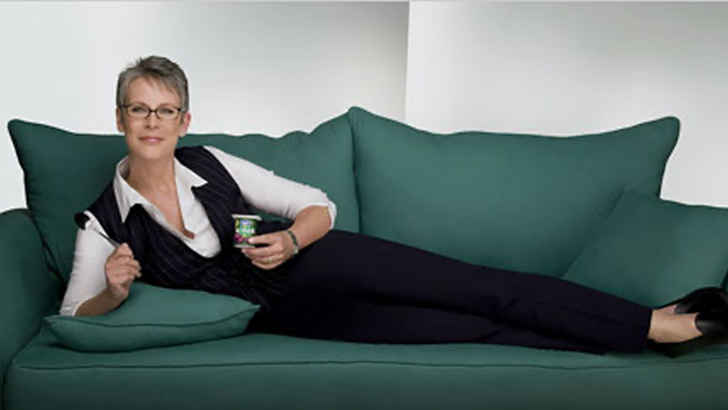
Activia Yogurt was definitely a fad food about a decade ago, and they even got Jamie Lee Curtis to tell you on TV that their product was “scientifically proven” to regulate digestion, along with boosting your immune system. Sounds great right? Well, Dannon brands got handed a dose of their own medicine from the judge when he found they “simply haven’t proven” anything. It cost them a whopping $45 million.
Shape Ouch
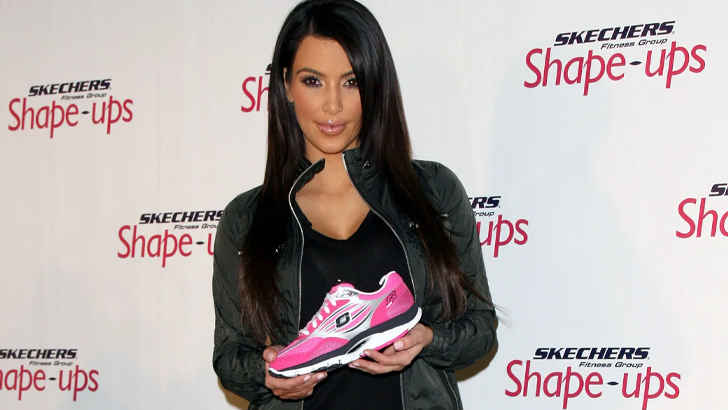
Skechers Shape-Ups were truly a thing to behold. If you weren’t absolutely appalled at their literal shape, you may have bought them because they claimed to help those who wore them lose weight, and also receive toned muscles. Well, that was just too good to be true, and the false marketing cost them $50 million!
30% More Dog Years?
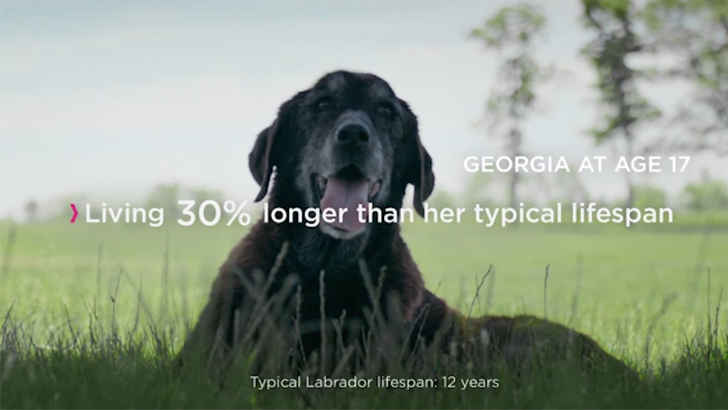
Maybe you’d be surprised to know that the same company that makes M&Ms and other candies also makes dog food. Mars’ Eukanuba brand wasn’t too careful about making outrageous claims about their food giving your dog a 30% longer lifespan, which just on its face seems ridiculous. The FTC subsequently cracked down, and forced them to revoke the statement.
Walk the Walk
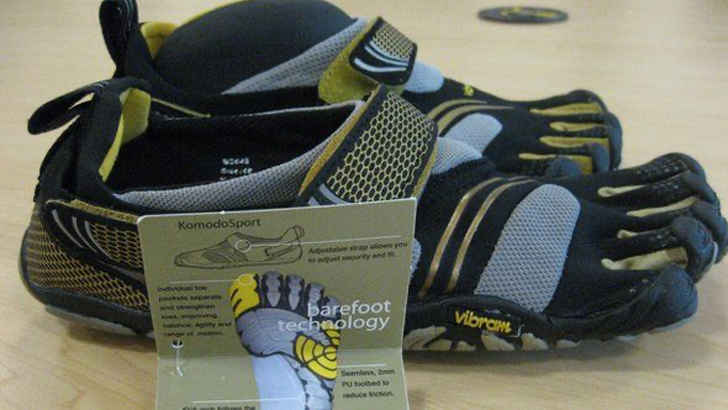
Vibram fivefinger shoes are one of the more strange products to gain popularity in the 21st century, but many people first bought them because they were told they would give more benefits than regular shoes, such as stronger feet and toned calves. Well, you can imagine these were deceitful allegations, and they couldn’t back up their claims.
Not So Sweet
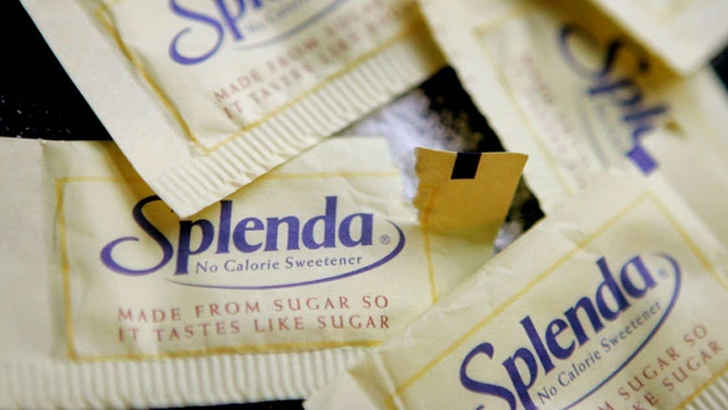
Splenda sweetener originally asserted that their product was made from real sugar, but when looked into, courts ultimately decided that was misleading. Since their slogan was literally “Made From Sugar”, they literally had to settle a lawsuit, drop the phrase, and re-market the product differently. The kicker is that the entity who brought this upon them was a sugar substitute competitor.
Volkswagen Emissions
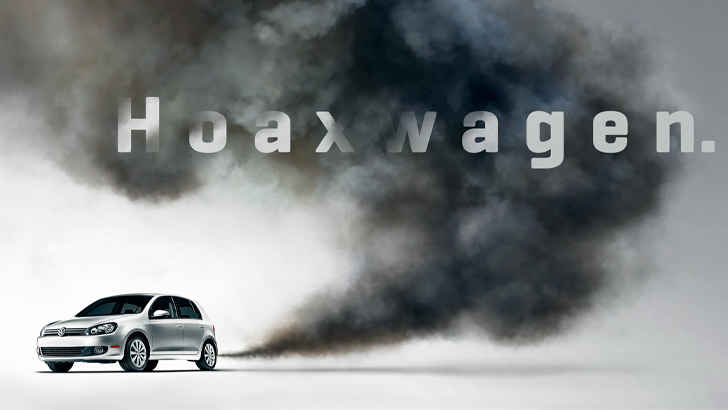
In perhaps the most costly mistake on this list, Volkswagen made one of the worst missteps a car company could ever make. The German automobile company tried saying their diesel vehicles were environmentally friendly, but in reality they had actually cheated on their emissions tests. The company has already paid $15 billion for this, and they’re still not out of it yet. Not to mention the entire leadership was forced out in the aftermath.
Air-boring
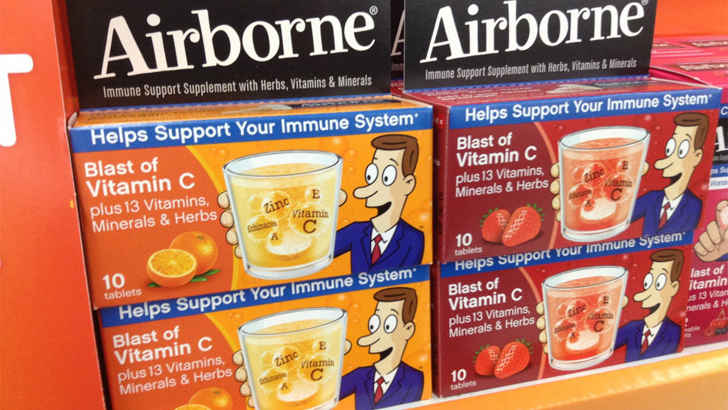
When people were first introduced to Airborne supplements, they were excited because the company claimed they would help fend off the most harmful germs and bacterias, therefore preventing subsequent flus or colds in the future. That was just a flat-out lie though, as it was soon after uncovered that they were just regular vitamins at a jacked up price. Users weren’t happy.
Smoke & Mirrors
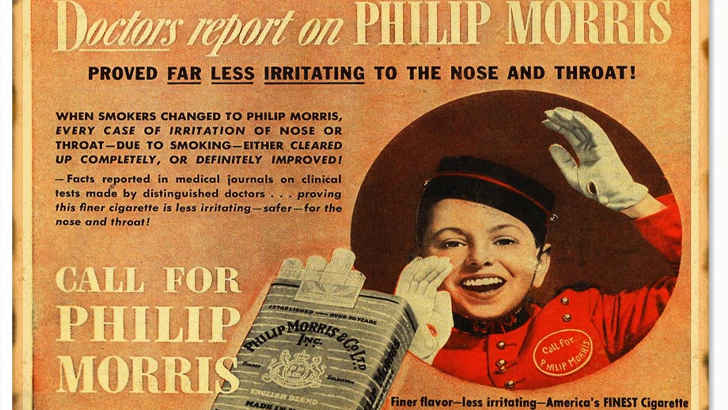
It’s always fun to look at vintage ads to see what wild and crazy claims they made back in the day, especially for cigarettes. One way Phillip Morris tried to get ahead was by saying their cigs were less harmful on the nose and throat, which is just blatantly false. However, at the time, the industry and scientists already knew they were getting away with it, which is even more unfortunate.
More From Lifestylogy
-


27 Books That Everyone Should Read At Least Once In…
-


25 Green Vegetables That You Should Be Eating
-


30 Essential Vitamins and Minerals Your Body Needs
-


20 Things People Mindlessly Spend Their Money On That Might…
-


24 Fruits That Are Great Additions For All Your Fall…
-
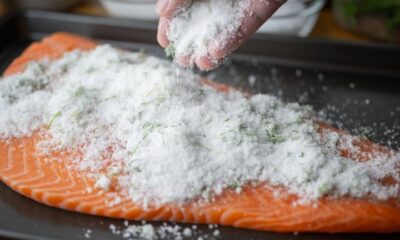

25 Foods To Avoid If You Are On A Low…
-


25 Foods That Are High In Protein But Low In…
-
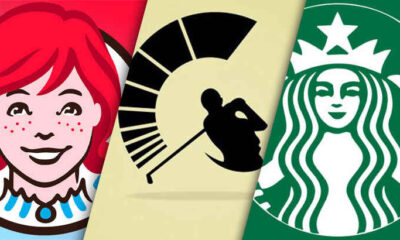

Hidden Meanings in Brand Logos
-


20 Vitamins That Make The Most Impact On Your Health
